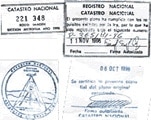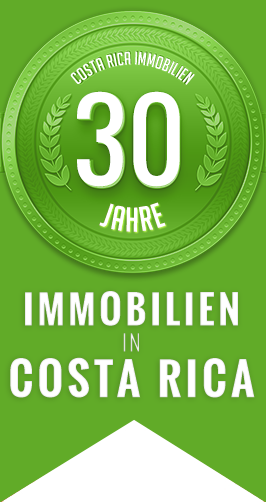The Costa Rican legislation guarantees the absolute right to private property

It secures the acquisition, the property and the sale of real estate and includes not only properties but also the buildings on them.
The acquisition of real estates for private people is restricted only at the coast, mouths of rivers or the islands in front of the two coasts. This regulation is valid for both locals and foreigners.
Registration of property
The system of the property registration is very organized. According to the Civil Code (Codigo Civil) of Costa Rica, all proprietary titles are in the national registration authority in the department of property (Registro of de la Propiedad) located in the Registro National. The Registro Nacional is in Zapote and Curridabat on the street, districts of San José. Here, property documents are stored (Informe Registral) and contain extensive information over the corresponding properties, including mortgages or usufruct rights. Actually each document with a registration number (folio) is indexed, for that a fast access to the information is secured.
Acquire of real estates
Careful investigations always should go ahead the acquisition of the corresponding proprietary title. Only such aspects of a proprietary title (like mortgages or usufruct rights), that are registered at the time of a purchase will be later effective for the buyer. Insurance is not necessary for proprietary titles. The buyer shouldn’t let himself handed from the salesperson and check the corresponding land-register plan, which must show a stamp of the land-register office (Catastro Nacional). The land-register office is in the same building as the Registro Nacional. This land-register plan, “plano catastrado”, shows the exact borders of the property. If the property was parceled before, the necessary authorization stamp of the community “visado municipal”, is on the rear part of the plan.
The actual transfer of the title is sealed by the sales contract “Escritura de Traspaso”. If you stretch the transfer process over a longer time period, a pre-contract or optional contract (Promesa Reciprocal de Compra-Venta) can be made. The buyer of a property has the election, to write the sales contract for individual, together with other people or complete in the name of a public limited company. The last one has the advantage that the protection against hidden obligations is in this way bigger since the shareholders of a public limited company are not liable with their entire fortune. Another possibility of the liability restriction applies for couples: If both partners are together and inclusive for living they acquire a property, it can be used for the control of the common debts.
Lawyer
For the signature of the sale contract, an official notary, who runs a private office and is a licensed lawyer in addition, must be present. This condition must be complied in every case, if somebody acquires a proprietary title and wants to have this officially registered. The notary is a neutral party for law and control the interests of both covenantors. It is common that the buyer contacts the lawyer. It is also important the level of trust that the lawyer has in case of any doubt. If the property is incriminated with mortgage (hipoteca) or usufruct rights (usufructos), the salesperson has the right to choose the notary.
In every case, the buyer should consult an independent and competent lawyer. The costs are a worthwhile investment normally and considerably more inferior than possible losses, that can be caused by an incompetent notary. Who don’t understand the Spanish language should contract a bilingual lawyer or notary. If there are doubts about the competence or the lawyer’s righteousness, ask another expert. Foreigners, who lived for a long time in Costa Rica, can help with the selection of competent specialists. Something that can help with the search is the lawyer chamber, Colegio de Abogados de Costa Rica or the embassy. Others, like contacts of an already switched on real estate broker can be used with the election of a lawyer (Address of the lawyer chamber “Colegio de Abogados de Costa Rica” in the addresses part). Caution: For attorney’s fees, in Costa Rica the minimal fees are established but after that there is not a limit. The price and service fees are very different. The bases of the real estate acquisition are laid down in Titulo VII of the civilian code from Costa Rica.



